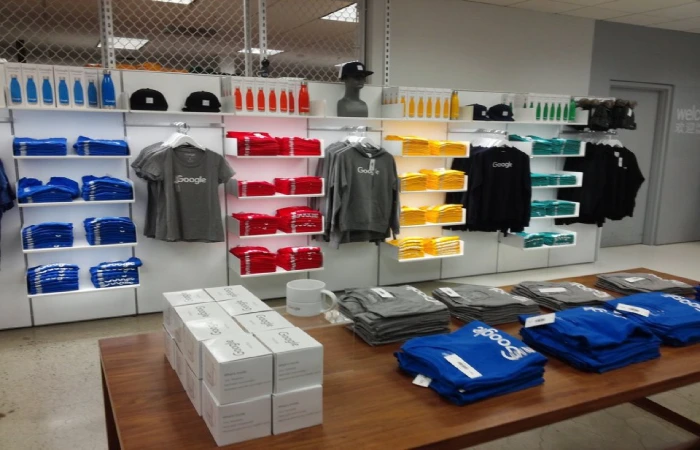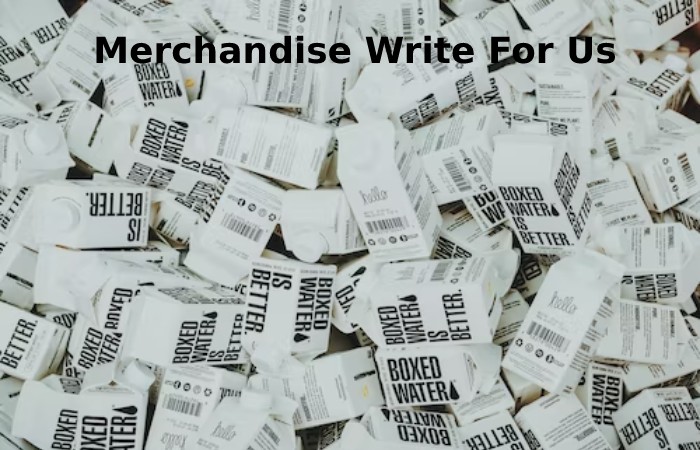
Merchandise Write For Us – 1. What effects can the so-called BREXIT have on imports and exports?
The departure of the United Kingdom from the European Union means, among other things, that the flow of goods between Spain and the United Kingdom will no longer considered intra-community operations to become subject to customs formalities.
2. What authorized economic operators? What is the OEA authorization?
The Union Customs Code defines an economic operator as a person who, within the framework of his professional activities, carries out activities regulated by customs legislation.
However an Authorized Economic Operator can define as a trustworthy, compliant, reliable economic operator for customs operations that, depending on the type of AEO authorization it holds, will obtain advantages throughout the European Union in terms of customs simplifications and security facilities and protection.
However, these economic operators granted an AEO authorization as proof that they hold the trust status of Customs.
2.1. Why has the OAS statute created?
Moreover, different kinds of risks faced by the countries of the European Union have made it necessary, in addition to carrying out traditional customs controls, to increase the role of customs in terms of security in the international logistics chain.
The objective of guaranteeing the security and protection of the Union’s external borders is not only to fight against the terrorist threat but also to collaborate in the fight against organized crime and defend citizens against other dangers, such as in the scope of consumer protection or the environment, without this increase in customs controls harming legitimate trade.
The figure of the authorized economic operator is one of the most important mechanisms through which customs develop this new role to benefit legitimate trade.
Moreover, Applicable regulations.- REGULATION (EU) Nº 952/2013 OF THE EUROPEAN PARLIAMENT AND OF THE COUNCIL of October 9, 2013, establishing the customs code of the Union DELEGATED REGULATION (EU) 2015/2446 OF THE COMMISSION of July 28 of 2015 by which Regulation (EU) No. 952/2013 of the European Parliament and of the Council is supplemented with implementing regulations relating to specific provisions of the Union Customs Code IMPLEMENTING REGULATION (EU) 2015/2447 OF THE COMMISSION of November 24 2015, which establishes rules for the development of specific provisions of Regulation (EU) No. 952/2013 of the European Parliament and of the Council, which establishes the Union customs code.
3. Who can file returns?
Generally, any natural or legal person who meets the requirements mentioned in the Community Customs Code may make declarations before any customs administration.
However, The presentation of declarations may made, by the qualified persons, in their own name and on their own account or by using a customs representative designated for that purpose.
Applicable regulations.- Article 1 of Royal Decree 335/2010, of March 19, which regulates the right to make customs declarations and the figure of the customs representative.
4. Who are the self-shippers?
Qualified natural persons who make declarations in their own name and on their own account.
However Public and private legal entities submit their declarations by themselves using the electronic means accepted by the Customs Administration and by whoever represents them when the statements are made on paper.
A power of attorney may only granted to directors or workers by an indefinite employment contract if the presentation made through their voluntary representative. In the latter case, the worker may not represent companies other than the one that has given him power of attorney for these purposes. His action limited to acting on behalf of the entity that empowers him. The acceptance of the customs declaration by the Customs will conditioned to the corresponding accreditation.
Applicable regulations. – Article 1 of Royal Decree 335/2010, of March 19, which regulates the right to make customs declarations and the figure of the customs representative.
4.1. In the self-dispatch, who must present the customs and fiscal debt bonding guarantees?
When, because of the applicable regulations, the constitution of a guarantee required to guarantee the payment of a customs and fiscal debt, the contract must presented, in his capacity as debtor, by the natural or legal person who makes the customs declaration in his own name and at his own expense.
At the request of the declarant, the customs authorities will allow a global guarantee to constituted to cover several operations that give rise to or may give rise to a customs and fiscal debt.
Suppose the guarantee constituted using an endorsement or bond. In that case, the guarantor or guarantor must expressly undertake in writing to pay jointly and severally with the declarant the guaranteed amount of the customs and fiscal debt whose payment becomes due. The guarantor must have the status of the credit institution, insurance entity, and mutual guarantee company established in the territory of the European Union.
Therefore Applicable regulations. – Article 2 of Royal Decree 335/2010, of March 19, which regulates the right to make customs declarations and the figure of the customs representative
4.2. What do auto dispatchers have to prove to Customs?
Natural persons who make a customs declaration in their own name and on their own behalf must prove their identity when requested by the officials before whom the order presented by showing the national identity document or passport.
In case of the presentation of declarations by legal persons through their representative, the acceptance of the customs declaration will conditioned to the accreditation by that of the representation.
Therefore Applicable regulations. – Article 2 of Royal Decree 335/2010, of March 19, which regulates the right to make customs declarations and the figure of the customs representative.
5. What is representation?
The presentation of declarations made by natural or legal persons that represented before the customs authorities must done through a customs representative.
Said representation can direct, that is, when declarations filed on behalf of and on behalf of others, or indirect when they filed on their own behalf and on behalf of others.
Therefore Applicable regulations.-Articles 1 and 3 of Royal Decree 335/2010 of March 19 regulate the right to make customs declarations and the figure of the customs representative.
5.1. What requirements are required to a customs representative?
They can be customs representatives, being able to act both directly and indirectly, natural or legal persons who meet the following requirements:
- However Being established, according to the customs legislation of the European Union, in Spain or in the territory of any other Member State thereof or, in the cases provided for in the bill above, in third countries.
- Accredit the necessary training for the development of the activity of customs representatives.
- Registered in the Customs Representatives Registry of the Customs and Excise Department of the State Tax Administration Agency.
However Applicable regulations. – Article 4.1 of Royal Decree 335/2010, of March 19, regulates the right to make customs declarations and the figure of the customs representative.
6. What is the release for free circulation?
However Non-Union goods intended to be placed on the Union market or intended for private use or consumption within the Union shall be included in the regime for release for free circulation.
Moreover the release for free circulation will imply
- The collection of import duties due;
- The collection, as appropriate, of other taxes, by the relevant provisions in force regarding the collection of said taxes;
- The application of trade policy measures and prohibitions and restrictions to the extent that they have not been applied in a previous phase; Y
- Compliance with other customs formalities provided for the importation of goods.
Release for free circulation will confer on non-Union goods the customs status of Union goods.
7. What is understood by the origin of merchandise?
The country of origin of a good is determined either because it is wholly obtained in a country or because it has been sufficiently transformed or has received a substantial transformation in that country. For this reason, rules of origin are required to define those transformations that confer origin.
That is to say Merchandise purchased in Spain will be of Spanish origin if it has entirely obtained or has undergone a sufficient transformation in Spain.
7.1. Why the origin of merchandise accredited?
Basically From the customs point of view, it is necessary to prove the origin of merchandise for the application of trade policy measures (quotas, quantitative limits, anti-dumping, anti-subsidy, etc.) and preferential tariff policy measures (tariff benefits under agreements or EC preferential regimes with certain countries, group of countries or territories).
Therefore Depending on the country of origin of the merchandise, an average tariff rate or reduced or null tariff rates derived from the granting of:
- a) Preferential tariff measures contained in agreements that the European Union has entered into with certain countries or groups of countries and that provide for the granting of preferential tariff treatment;
- b) Preferential tariff measures adopted unilaterally by the European Union in favour of certain countries, groups of countries or territories; for example, the Generalized System of Preferences (SPG).
- c) Autonomous suspension measures that provide for the reduction or exemption of import duties applicable to specific merchandise. Tariff quotas collected here.
Therefore In addition, depending on the origin of the merchandise, the import of merchandise can limited or subject to certain conditions or requirements that must met, for example, measures that prohibit the importation into the European Union for political, health or public order reasons or actions that require determining controls, such as health certificate, veterinary, SOIVRE (quality) etc.
7.2 What are the rules of origin?
However The rules of origin the rules established by a country or set by mutual agreement between two countries (or group of countries) that lead to the determination of the country that must considered as the origin of the merchandise obtained or elaborated.
Therefore For the determination of origin, there are two types of differentiated rules:
- The rules that regulate exchanges are not subject to any preference (NON-PREFERENTIAL ORIGIN)
- The rules will regulate exchanges within the framework of preferential agreements entail tariff reductions or privileged treatments, and even up to zero duty in many cases, which we will call preferential rules of origin.
However Applicable standard. – REGULATION (EU) Nº 952/2013 OF THE EUROPEAN PARLIAMENT AND OF THE COUNCIL of October 9, 2013, establishing the Union customs code DELEGATED REGULATION (EU) 2015/2446 OF THE COMMISSION of July 28, 2015, by which completes Regulation (EU) No. 952/2013 of the European Parliament and of the Council with implementing regulations relating to specific provisions of the Union Customs Code EXECUTION REGULATION (EU) 2015/2447 OF THE COMMISSION of November 24, 2015, which establishes rules for the development of specific provisions of Regulation (EU) No. 952/2013 of the European Parliament and of the Council, which establishes the customs code of the Union Agreements signed by the European Union.
8. What is the customs value?
That is to It is essential to know what the customs value of a merchandise is for the application of the customs tariff of the European Communities, as well as other measures other than the tariffs established by specific community provisions in the framework of merchandise exchanges.
The customs value of imported goods will be their transaction value, that isis, the price actually paid or payable for the goods when they sold for export to the customs territory of the Union, adjusted, where appropriate.
In general, the customs value is the tax base of the customs debt, calculated by the provisions of articles 69 and ss of the Union Customs Code (CAU)
Basically, The tax base can calculated on a physical magnitude (the good or product), on the value of the merchandise, or on a combination of both.Therefore Applying on the specific, ad valorem, or mixed duties, respectively.

Likewise, You can submit your articles at contact@businessinsiderblogs.com
How to Submit Your Merchandise Articles Merchandise Write For Us?
That is to say, To submit your article at www.businessinsiderblogs.com, mail us at contact@businessinsiderblogs.com.
Why Write for Us Business Insider Blogs– Merchandise Write For Us
- Writing for Business Insider Blog can expose your website to customers looking for Merchandise.
- Business Insider Blog presence is on Social media, and it will share your article with the Merchandise-related audience. You can reach out to Merchandise enthusiasts.
Merchandise Write For Us
here at Business Insider Blogs, we publish well-researched, informative, and unique articles. Therefore we also cover reports related to the following:
consumer
sales
product design
packaging
pricing
food chain
discounting
goods
services
social
heterotroph
autotroph
ecosystems
Venus flytrap
organisms
abiotic components
environment
photosynthesis
carbohydrate
sugars
Guidelines of the Article – Merchandise Write For Us
- We at Business Insider Blog welcomes fresh and unique content related to Merchandise.
- Business Insider Blog allow a minimum of 500+ words related to Merchandise.
- The editorial team of Business Insider Blog does not encourage promotional content related to Merchandise.
- For publishing article at Business Insider Blog email us at Contact@businessinsiderblogs.com
- Business Insider Blog allows Posts related to Health Care, Wellness, Fitness, Fashion, Hair and many more.

